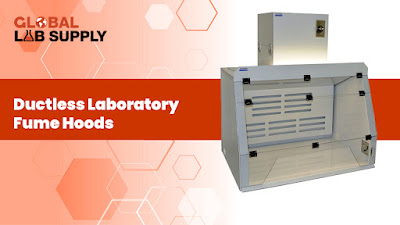Ductless laboratory fume hood performance is regulated by ASHRAE Standards 54-1980 Gas Filtration for Laboratory Fume Hoods. It is the most prevalent of laboratory equipment variation, and has its own advantages.
Homeowners often have to choose between a sealed system or an exhaust ducted system.
Benefits of a sealed hood:
It is the lowest priced solution. It can be more quiet. It can exert less pressure into the room. But it is generally less efficient than ducted exhaust systems.
Disadvantages of a sealed hood:
It can be less efficient. It often creates more heat than an exhaust hood due to the air leakage that occurs between the duct and the hood. It is less energy efficient than ducted exhaust hoods. Because a sealed hood can be noisy and susceptible to room air leaks, it is sometimes not allowed in a residential setting on the basis that it interferes with the quiet enjoyment of nearby residents.
How do ductless fume hoods work?
Ductless laboratory fume hoods systems operate at the same atmospheric pressure as the surrounding room atmosphere. The hood is connected to a plenum in the ceiling that has a larger cross-sectional area than the room.
What are ductless fume hoods and how do they relate to conventional fume hoods?
A ductless fume hood is much like an exhaust hood, except that it doesn't have a return duct. It does, however, replace one or more conventional exhaust ducts.
One advantage to ductless fume hoods is that they can be lighter and smaller than a conventional exhaust hood system.
What is the difference between ducted and ductless fume hood?
Ductless Laboratory Fume Hoods are a good alternative to sealed fume hoods. They are very quiet and are considered to be more energy efficient than fume hood systems with ducted exhaust systems. They also offer more flexibility in size because it is possible to have multiple hoods operating from a single exhaust plenum.
Ductless are a new fume hood development. Ductless systems eliminate ducting, thus providing benefits of silence and convenience.
Benefits of ductless fume hoods:
They are quieter. They are smaller than an exhaust duced hood. There is no longer a central exhaust and all the air must be exhausted to the outdoors.
Conclusion:
Most laboratory fume hoods fall in the category of exhaust hoods.
